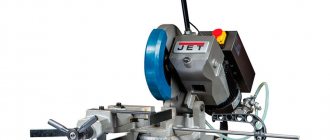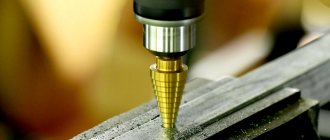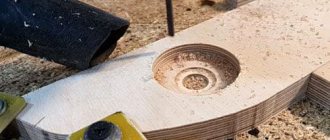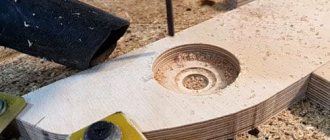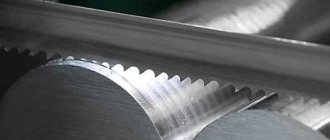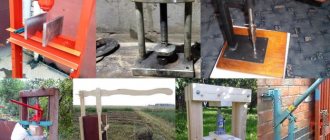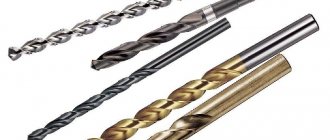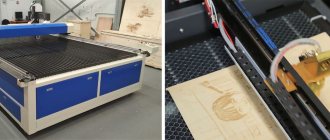The first patent for the creation of a bandsaw machine was received by the English engineer William Newberry in 1807, since then its concept has not undergone significant changes.
A saw in the form of a closed belt stretched on pulleys, one of which is a drive, is still the working part of any band saw machine. High cutting speed coupled with minimal dynamic loads makes a metal band saw an effective and sought-after piece of equipment. Such devices have advantages compared to circular saw (disc) cutting equipment. The latter, although it costs less, is in demand only in everyday life and in very small workshops - and even there, as the survey shows, they are thinking about replacing it. In this article we will talk about the operating principle, types and advantages of band machines.
Band saw for metal - what is it?
Currently, a great variety of band saw machines are produced: from the simplest manually controlled “cutters” to automatic machines capable of solving a wide variety of problems. With all this diversity, in accordance with the design of the saw frame, they are divided into four groups of equipment. The design and operating principle of metal band machines are described in the table:
| Types of metal band saws | Structural diagram | Functional | Note |
| Cantilever (pendular, cut-off) | Has an inclined saw frame, which, when lowered, cuts the workpiece | Cutting metal profiles and hollow parts (pipes up to Ø 300 mm, squares, etc.) | Can be swivel or fixed for sawing at right angles or at an angle of 45° |
| Horizontal (Single Post) | The horizontal saw frame moves along one vertical column, which is also called a stand | Cutting solid workpieces up to Ø 200 mm or hollow metal products | Prone to vibration and frequent saw blade breakage |
| Horizontal (two-column, two-post) | The saw frame resembles a cross beam, while the guide columns can have different profiles | Cutting solid workpieces up to Ø 500 mm | Can have a rotation angle range of 30° - 135°. |
| Horizontal (portal) | Two columns are additionally reinforced by a horizontal beam | Cutting large-sized metal structures (from 0.5 to 1.5 meters in diameter) | The saw can be installed to the working surface of the table at an angle of 3° |
| Vertical | The saw frame is stationary, the part is fixed on a movable table. For large machines, on the contrary, the saw frame moves along the table. | Longitudinal sawing of long workpieces | Capable of bevel cutting at angles up to 45°. |
Specifications
Key parameters to consider when choosing a band saw:
- power: a household unit has enough power of 500 - 750 W, industrial units can be up to 3 kW;
- mains voltage: household models operate from 220 V, industrial models from three-phase 380 V;
- cutting depth: the weakest machines can handle boards up to 15 cm thick, industrial ones - up to 1 meter;
- cutting width: the maximum cutting width is determined by the distance from the tape to the stand. Minimum distance 350 mm, sufficient for working with small parts;
- the speed of movement of the belt or cut is measured in meters per minute and can be from 200 to 1250. The higher the speed, the cleaner the wood is cut. For hard rocks the speed is slightly reduced;
- dimensions of the working surface;
- saw blade length;
- mechanism weight.
Features and types of band saw machines
Cantilever band sawing machines are most in demand in metalworking, because on the one hand they are characterized by a wide range of applications, and on the other hand, they are easy to operate and affordable (from 20 thousand rubles). They can have either stepwise rotation of the saw frame, for example, 30°, 45° and 90°, or stepless rotation - in the range of 90°-30°. Typically, the frame lowers under its own weight, and the speed of sliding onto the workpiece can be adjusted by the operator using a damper cylinder.
Horizontal bandsaw machines can be either single-column, double-column, or reinforced with a transverse beam and having a powerful frame - portal. The machines of the first two types are small in size, the rigidity of the columns in them is sufficient. In portal saws, the saw frame moves up and down along a U-shaped structure. Depending on the purpose and functionality, they can have a rotating saw frame, and also be equipped with a mechanical vice or an integrated collet feeding system.
Vertical band saws are considered obsolete and, unlike horizontal ones, are practically not in demand, since when using them it is difficult to fix parts on the table and there is a high probability of injury. Nevertheless, there is a demand for them - they are needed, for example, for longitudinal cutting of long workpieces.
Tools and materials
To create the type of saw in question, you will need the following tools and materials:
- a piece of plywood approximately 1.5 centimeters thick;
- timber made of solid wood;
- tapes or attachments that will be used for a screwdriver or grinder;
- a pair of bearings for a drive axle;
- studs, washers, self-tapping screws, nuts, fittings;
- a pair of shafts;
- bolts that will be used to adjust the vertical and horizontal types;
- a pair of brass bushings with internal threads;
- PVA glue;
- upper type axle bearings;
- lamb for tuning screws;
- insulating tape.
Separately, it should be noted that in order to correctly create certain parts of the saw, you must have drawings. To work you will also need the following components:
- pulleys;
- sawing table;
- base;
- cutting blade;
- mechanism responsible for tensioning the tape.
Classification of band saw machines
Class 1 - Class 1 band saw machines are designed for sawing difficult-to-process materials, including non-ferrous alloys, structural and high-alloy steels, nickel and titanium alloys. They are characterized by great power.
Class 2 - Class 2 band saw machines are used for cutting metals and alloys with bimetallic band saws - including non-ferrous metals, alloy and stainless steel, heat-resistant steel, easy-to-process titanium alloys.
Class 3 - Class 3 band saws are designed for cutting pipes and profiles, although they can also be used for sawing solid products. Characterized by low productivity.
Class 4 - Class 4 band saws are not intended for production purposes, but can be used in workshops for cutting steel sheets up to 1 mm thick.
Brands and models of machines for cutting metal parts
One of the most promising brands in this area is Metaltool. The manufacturer's catalog presents stationary band saw machines for cutting metal of various types and compositions.
The MT-712N model produces cutting in manual, semi-automatic and automatic modes, and has a tool cooling system. The range of metals acceptable for cutting is not limited.
One of the most affordable options is MT-812N. This is a reliable and simple device for cutting profiles and sheets. The most modern machine MT-916S is equipped with up-to-date control modules, the maximum number of settings and functions. This is an industrial system that can operate in the mode you need.
Classification by control system
Based on the control system, machines are divided into:
- Manual . Manually operated band saws are designed for cutting metal in small-scale production. As a rule, these are cantilever or single-column machines in which the saw frame is lowered by the worker - in this case, automatic return is not provided. They have a budget price tag.
- Semi-automatic devices . The semi-automatic band saw machine is equipped with an automatic system for lowering the saw frame, has a mechanism for auto-return of the frame at the end of cutting and is equipped with a hydraulic vice for fastening. The worker only feeds the workpiece under the saw blade; the machine does the rest.
- Automata . Automatic metal band sawing machines have the highest degree of automation, that is, they can operate without an operator. They are capable of clamping workpieces, cutting and removing finished products without the participation of a worker at all. Such equipment is very expensive and is intended for assembly line production. The machines are required to be equipped with:
- high-precision rotation angle sensors;
- saw frame height sensors;
- sawing pressure indicators;
- rotation speed sensors, belt break indicators on the pulley;
- interface for connecting to external control via the Industrial Internet of Things.
Necessary equipment
Such a tool is needed if there is a need to work with wood. Although some models of band saws also allow you to work with synthetics, metal, and stone. The high density of the described materials requires the use of devices that contain components made of reinforced steel. A standard analogue will not be suitable due to the fact that when processing metal or any other of the mentioned materials, a disk with teeth very quickly becomes unusable.
If we talk about the equipment that will be needed to make a band saw, then this is:
- welding machine;
- welding machine (it is better if it is semi-automatic);
- Bulgarian;
- sharpening machine;
- electric jigsaw;
- Sander;
- screwdriver
By the way, electric tools can be easily replaced with their manual counterparts. However, it is worth keeping in mind that this will significantly increase the assembly process time and require more labor.
Read reviews
If in a large enterprise the choice of equipment is carried out by specialized specialists, then in a small and medium-sized business the entrepreneur has to rely solely on himself. You don’t really have to trust the consultants from the selling companies, since they are interested in selling their tape machines. In order to choose the equipment correctly, you should carefully study the characteristics of the metal band saw. Often in small industries, metal cutting is done manually using ordinary grinders. Meanwhile, the use of band saws makes it possible to achieve high-quality cuts, with virtually no metal shavings.
Metal processing specialists advise paying attention to Russian equipment, since there are specialized services that will help you quickly find the reasons for poor machine performance, for example, when the material supply is not adjusted or the drive mechanism is “capricious”, breaking the blade. The most valuable information when choosing equipment is reviews on specialized forums, telling, for example, how to use German spare parts to significantly increase the reliability of Chinese metal band machines.
Principle of operation
As mentioned above, the key cutting element of such machines is a belt, which is pulled over two flywheels. This element starts working immediately after turning on the machine. Once this happens, cutting can begin.
The device is designed in such a way that when performing a task, the pressure on the workpiece becomes uniform. This feature allows you to make precise cuts. In addition, cutting with a band saw is performed both perpendicularly and at an angle of up to 60 degrees. To get a cut at an angle, it is enough to change the position of the blade or rotate the movable frame where it is fixed. You can also try the desktop rotation method.
During operation, the cutting blade overheats greatly, which increases the likelihood of its breakage. To protect the structure from such consequences, it is enough to apply a cutting fluid to the cut site, which can protect the working blade from rapid wear, as well as protect the surrounding air from metal dust or sawdust. As such a means, ordinary water or a special composition is used, which guarantees complete cooling of the equipment and lubrication.
Some manufacturers install special brushes on their models that automatically clean the working surface of all residues in the form of chips and dust. This simple solution allows you to achieve a smoother cut, as well as increase the service life of the device and provide the operator with reliable protection .
The band saw machine has different types of saws:
- Carbon steel. Designed for processing alloyed and unalloyed alloys;
- From bimetallic alloys. Necessary when using special cutting modes;
- Made from carbide materials. This solution is indispensable for cutting metals that are difficult to process. We are talking about cast iron, alloys with a high titanium or nickel content;
- Diamond coated. Such models are suitable for processing abrasive raw materials;
Examples of choosing machines for small and medium-sized businesses
The Anchor Corvette 422 cantilever machine is designed for small-scale work; it has a rotary vice, but is equipped with a coolant supply system. The console Proma PPS-270THP is capable of sawing at any angle chosen by the operator.
The two-column semi-automatic machine Fmb OLIMPUS 3+VHZ is designed for simultaneous sawing of several rolled products; it can cut large-sized workpieces made of steel of all grades, albeit with low productivity.
What brands are most in demand today:
Selection of tape material
It is extremely difficult to make such a canvas for wood or metal carving at home. For such purposes, tool steel type U8 or U10 is suitable. The log saw should be as flexible as possible. Its thickness for soft wood should be approximately 0.3 mm, and for harder wood - 0.5-0.7 mm. The length of the blade of such a saw will be about 170 centimeters.
It is also necessary to make the teeth yourself, set them correctly and sharpen them. To weld the tape into a solid ring, you need to use solder and a gas torch. The joint seam itself should then be sanded.
It is more convenient to purchase a finished product in a store. Typically, the width of such canvases ranges from 1.8 to 8.8 centimeters. It is better to select a model for such a saw based on what material you plan to cut. Manufacturers usually offer the following categories of saws:
- from hard alloys (they make it possible to process high-strength alloys);
- based on diamonds (their use makes it possible to cut materials such as marble, quartz, granite);
- made from tool-type steel strips (they are used for cutting wood);
- bimetallic (they are necessary for working with metals).
Read also: Do-it-yourself silent block remover drawings
If the saw is homemade and small, as in the case under consideration, then it is best to buy a product made from tool-type steel strips. This option is affordable and practical. If the work will be carried out with hard materials, then it is better to buy an expensive saw that is highly durable and resistant to wear.
If such a tabletop horizontal mini-saw will be used for shaped cutting, then the width of the blade should be selected taking into account the radius of curvature. Another important criterion is the quality of sharpening of the teeth. The cutting edge should be as smooth and sharp as possible.
What to pay attention to
Replacing wear parts can cause a lot of inconvenience, so when purchasing, be sure to find out the service life of carbon brushes, drive belts, guides and feed rubber rollers, bearings, and toothed belts. And also are there any reliable analogues from German or Japanese manufacturers.
The cause of premature failure of band saw machines is mechanical damage due to worker negligence. In addition, reliability is negatively affected by:
- high humidity;
- aggressive environments;
- internal or external contamination of equipment;
- deliberate violation of operating instructions, for example, to increase productivity;
- power surges;
- foreign objects entering the saw frame - for example, sand, stones, insects;
- design changes;
- violation of the rules of lubrication and coolant cooling.
Are there any disadvantages to machines with a band cutting system?
Among the disadvantages, quite rapid wear of the cutting blade is noted. But this happens either when choosing low-quality tools, or when the operating conditions of the machine are violated. For some functions, such equipment will not be optimal because it does not perform the assigned tasks. For example, for cutting at an angle of 60 degrees it is easier to use other special devices.
With low energy consumption and low cost, such industrial tools can save businesses money. Therefore, if the correct model is selected and all operating conditions are observed, this device will not have any disadvantages.
How to do it yourself?
After making calculations and adjusting the dimensions of all elements, you can begin installing the band saw yourself. The main element of a carpentry-type machine is the work table, where wood, metal, stone or synthetics are processed. This design involves the circular movement of the element responsible for cutting, which affects the workpiece. Fastening is carried out by a pair of pulleys. It should be said that the entire structure takes up a lot of space, so when creating drawings you should take into account the dimensions of the room.
The frame of the bed is a load-bearing part that supports the entire mechanism of the device in question. It is made exclusively from metal profiles that need to be welded due to the fact that due to vibration during operation, the load increases significantly. If the machines are small in size and there are no metal profiles, then wooden analogues will do. But it should be a solid board 2-3 centimeters wide, and not plywood sheets or chipboard-type material.
The boards should be connected so that the layers meet at the intersection of the fibers. An extremely important detail will be the pulley block, which is responsible for tensioning the fabrics. The wheel shaft is fixed in an insert that is located inside the frame. The axle is adjusted using 2 threaded pins. Now let's move directly to the features of the assembly process.

